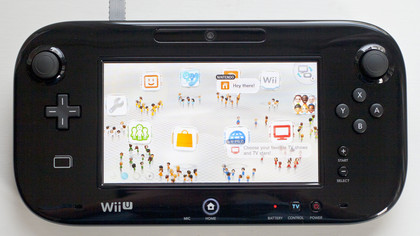10 ways the Xbox 720 can win the next gen
TechRadar's ten-point plan
Sony is paying attention to social activity too, but so far it still looks relatively closed off. Microsoft has a real chance to crack the gaming social market.

9. Combining it with Steam
We've put this towards the end because it's the least likely scenario here - more of a pipe dream actually - but just think how powerful a weapon Steam could be for Microsoft's new console to wield.
Unfortunately (for Microsoft) we know all too well that Valve is bringing out its very own living room console - the Steam Box - and having a platform on the Xbox console could be shooting itself in the foot somewhat. Then again, is there a benefit in doing both?
The more likely alternative is for the new Xbox to inflate its marketplace exponentially and offer its own Steam-like platform.
A more comprehensive app/game marketplace would be a big pull for indie developers, and increasingly as the indie market continues to boom.
Currently the Xbox Live Marketplace is fine for the essential apps such as Netflix and iPlayer, and not bad for game downloads, but we'd like to see Microsoft broaden it out a lot more.
10. If it's always-on, make it good
So it looks like the always-online aspect of the next Xbox might be kept to just the TV side of the console. Good news for many, but it's still not a sure thing.
Sign up for breaking news, reviews, opinion, top tech deals, and more.
And if it turns out that we're wrong and always-on does apply to the games themselves, Microsoft is really going to have to sell it. Hard.
"If this played out, you would potentially spend hundreds on a console, £50 on a game, and still not be able to use it if your internet dropped out," says Matt Hill, Deputy Editor of T3. "It feeds into the whole 'leasing' culture that is rising around us, how we don't seem to truly own anything any more, we just pay increasing amounts of money to have it temporarily and on someone else's terms."
This is what Microsoft will need to address if such a console does end up being revealed. When smartphone owners can get increasingly better games for increasingly better value on their handheld devices (with offline playability) why would they invest a lot more money in something that's never really theirs?
In many ways it's a shame that SimCity was almost totally marred by launch issues involving its servers. While there are plenty of fair criticisms to be made about the game's online model, it has brought a few decent features with it that many people have overlooked.
For example, SimCity exists has an always-running global trade market, allowing players to buy, sell and exploit as the market fluctuates. If tonnes of players around the world are selling oil, the price of that resource will drop. And so on.
Andy Robinson, editor of CVG, thinks that these are the sorts of things that could make future games compelling. "Sometimes you have to be bold to be brilliant," he says "And this could well result in some fascinating connected games with persistent, MMO-like features."
If our gaming experience is going to exist solely online, we want to see these bold ideas put into action to help outweigh the negatives. This is down more to the game developers than Microsoft, but an always-online system would no doubt alienate a huge segment of gamers unless it really brings something unique to the table.
Just imagine an online Grand Theft Auto world that never sleeps, populated entirely by other players. You picturing that? Yeah, we wanna go there.

Hugh Langley is the ex-News Editor of TechRadar. He had written for many magazines and websites including Business Insider, The Telegraph, IGN, Gizmodo, Entrepreneur Magazine, WIRED (UK), TrustedReviews, Business Insider Australia, Business Insider India, Business Insider Singapore, Wareable, The Ambient and more.
Hugh is now a correspondent at Business Insider covering Google and Alphabet, and has the unfortunate distinction of accidentally linking the TechRadar homepage to a rival publication.